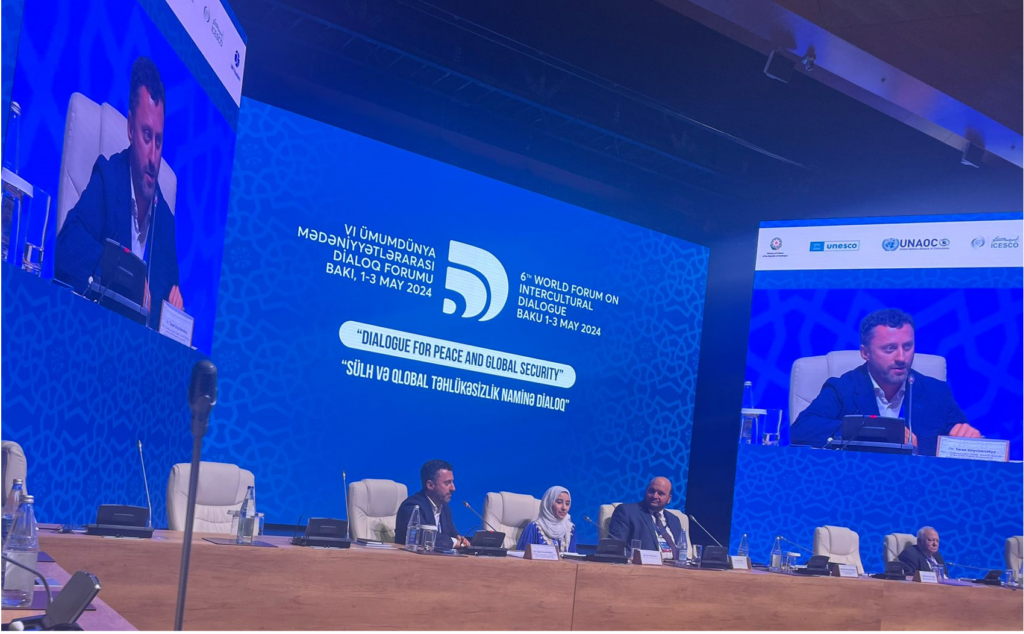In a world beset by multifaceted challenges threatening peace and human rights, the 6th World Forum on Intercultural Dialogue “Dialogue for Peace and Global Security: Cooperation and Interconnectivity” held in Baku, Azerbaijan, on May 1-3 shed light on a crucial yet often overlooked tool for fostering confidence and peace: interfaith dialogue. At the heart of the discussions was the recognition of the indispensable role of religious leaders, faith-based organizations, and civil society in cultivating a culture of peace and understanding.
The 3rd Plenary Session, spearheaded by the United Nations Alliance of Civilizations (UNAOC), brought together a distinguished lineup of speakers and panelists to delve into the significance of interreligious and intercultural dialogue in promoting social cohesion and sustainable development. Keynote remarks by notable figures such as His Virtue Sheikh-ul-Islam Allahshukur Pashazadeh and H.E. Miguel Ángel Moratinos underscored the urgency of inclusive approaches in addressing global conflicts.
Senior Alumni Advisor Dr. Taras Dzyubanskyy from the John Paul II Center for Interreligious Dialogue was among the speakers. Taras shared his experience and focused on building trust and fostering peace through meaningful engagement with religious sectors. His contribution highlighted the importance of harnessing dialogue as a tool for reconciliation, particularly in post-conflict societies where mutual trust is paramount for progress.
The discussions delved into practical strategies and good practices for interfaith dialogue, emphasizing the need for collaboration among diverse stakeholders. With panelists representing various religious and cultural backgrounds, the event provided a platform for sharing experiences and insights, paving the way for concrete actions to promote peace and understanding in our increasingly interconnected world.

